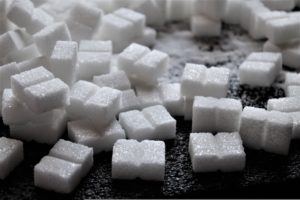Sugar
20 September 2022
Obesity is a major health problem as it affects half of the European population. Providing calories with little nutritional value, free sugars are therefore linked to weight gain and its associated health risks. In this digital age, screen time and social media usage in children and adolescents has and continues to increase, exposing them to targeted advertisement. Nonetheless, there is very limited data on the digital life of children. Programmatic digital media targets individuals with ad impressions based on their age, gender, location and interests. Thus, young minds can easily be targeted and influenced by industries. Notably, advertisement for High Fat, Salt and Sugar (HFSS) products. In a recent report “Monitoring and Restricting Digital Marketing of Unhealthy Products to Children and Adolescents” (June 2018) WHO Europe indicated that more needs to be done to monitor and limit digital marketing of HFSS and other unhealthy products to children.
SAFE agrees and support WHO’s statements. Indeed, exposing children to targeted online advertisement contributes to the development of obesity. If the EU wants to tackle childhood obesity, all risk factors need to be addressed. It is essential that national and European policy makers ban all High Fat, Salt and Sugar (HFSS) products advertisements targeting young minds.
SAFE also welcomes the EP’s move to protect the EU’s most vulnerable consumers by lowering excessively high sugar levels in baby foods. A report by the WHO’s Commission on Ending Childhood Obesity released on 25 January 2016, exposes distressing trends in obesity among children aged under five years. Almost forty one million children in this age group are obese or overweight worldwide. Considering the growing evidence on the links between child feeding in the early stages of life and childhood obesity and obesity and chronic diseases health outcomes in adulthood, the draft regulations’ sugar intake level for baby foods, as three times above the recommendations from the WHO was unacceptable. SAFE supports the results of the vote on processed cereal based baby foods and we urge the EC to adopt draft rules in line with the WHO’s recommendations to ensure the EU’s youngest consumers are provided with safe nutritious and adequate diets.
Further, SAFE’s Sugar Project, first implemented in Belgium with the Campaign “Désucrez-vous! Du sucre oui, mais pas trop” (= “Unsugar yourself! Sugar of course, but not too much”), before being extended to other EU Member States. Read more about SAFE’s Sugar Project here.
Publications:




